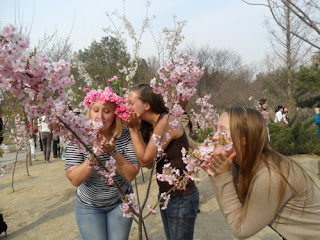Meals are an important part of life in China and big meals are an especially important aspect. It only follows that business meals are also an essential ingredient in life for entrepreneurs and their colleagues. However, just knowing they’re important is not enough. Whether you’re hosting or attending, these essentials tips will help you survive and thrive at a Chinese business dinner or banquet. If you are working or
studying in Beijing, China, except your good mandarin, it is also necessary to learn some basic rules of Chinese business dinner.
According to a Chinese saying, "Fan zhuo shang bu tan sheng yi" which means "Don't talk about business at the dinner table." That might seem to contradict reality, but the issues cleared up by another saying, "Fan chi hao le, sheng yi ye jiu hao le," which essentially means, "Business can be easily done if you treat them to a good meal." Hence the food and the company of the Chinese business meal is mostly a social lubricator – any talk of business won't start until long after the meal has begun, and is sometimes left for the end. Naturally, not too many negotiations are finalized and contracts signed during this time, but you can still use it to enlarge your social relationship, promote your business or deal with various problems. Even the social aspect itself is vital to doing business in China, as many businessmen and clients don't feel confident about working together until they've gotten to know the other.
There is no one-size-fits-all rule for business meals. They can be large or small, formal or informal, and the way a meal is structured will reflect how individuals prefer to do things. One thing is for certain, most people who host the meal will want to show off with abundant food and plenty of good rice wine. If you want to be a good host in China, or a good guest, have a look at some of the tips below. They were provided to us by a vice manager, a general manager and an administrator of sales and marketing at three different Chinese companies. They certainly know the ropes. In fact, they may have eaten through them.
If you are a host:
Guest list
You should consider the status of the guests and the relationships between them. Chinese people value status greatly. The best way to respect this is to avoid inviting people of widely varying status. If most of the guests are managers of companies, avoid inviting staff of much higher or lower levels. Also, don't invite people who have poor relationships. You don't want to create embarrassment or disrupt the essential harmony which your Chinese colleagues will expect.
Invitations
Send your invitation in advance, and give the guests a certain period of time to respond. Because many Chinese people, especially those in high positions, don't like to reply immediately you will have to be patient and should expect to wait for your responses.
Culinary details
The location of your meal, the food and the drinks all need to be considered carefully. Often, but not always, secretaries take care of this. If your guests are familiar to you and each other, then you can easily arrange the meal according to their likes and dislikes. If you aren’t very familiar with your guests don't select a restaurant which serves very unique food, select one which serves the most popular dishes. At the very least, seafood and decent rice wine will be expected as part of the feast.
Price
You will drop anywhere between several hundred and ten thousand RMB. Most business people lean toward the extravagant end of that scale.
Greetings
Before your meal, you will want to introduce the guests to each other. Be careful to observe the social order – introduce lower status guests to higher status ones, and younger attendees to older ones.
Seating
Arrange your seats in order according to their different status. The common arrangement for a round table, is the host (that's you, remember) seated on the east, with the higher-status guests nearest to him and the rest in descending order. The common arrangement for a square or rectangular table is with the host seated facing the door with his high-status associates close by. However, if there is no door in sight, revert to the host-on-the-east arrangement.
Keep on toasting
To keep a happy atmosphere, there will be MANY toasts during the meal. As the host, you should expect to lead some of them. (See the section on toasts below.)
Take your time
Don't talk about serious business early in the meal, it will create a tense atmosphere and lessen the pleasure. However, you can mention business from time to time during the meal, and keep note of the guests' responses. Remember, maintaining harmony is the most important thing.
Keep your seat
As the host, you don’t want to leave your seat unless it's absolutely necessary. Therefore, it's better to arrange for one of your retinue to pay the bill at the end. To avoid embarrassment, don't pay the bill in front of your guests or let them know the cost. Some people like to fight to pay it even though they know they are guests.
 |
| Tips on Chinese Business Dinner for Hosts |

















